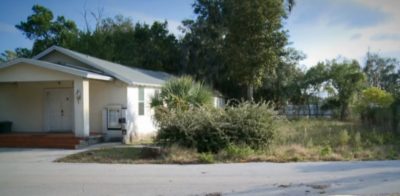|
Listen To The Article
|
 A small church in Florida spent more than $50,000 to buy a piece of land it didn’t need because of an eminent domain threat from the state.
A small church in Florida spent more than $50,000 to buy a piece of land it didn’t need because of an eminent domain threat from the state.
The congregation at the Glorious Bethlehem Temple in Jacksonville bought the land because they were told the Florida Department of Transportation (FDOT) was going to take their property for freeway expansion.
After spending the money and buying the lot, church members learned that the FDOT didn’t want their property after all. Now the small congregation is out more than $50,000 and stuck with a piece of property it doesn’t want or need – and the church has not been reimbursed by the FDOT.
“In 20 years of eminent domain practice, this is one of the most oppressive acts of conduct that I have seen,” was how attorney Andrew Brigham described FDOT’s behavior to a Jacksonville TV station. Brigham is representing the Glorious Bethlehem Temple.
Church Claims Transportation Department Lied
Pastor Don Richardson feels that FDOT officials deceived him and his congregation. The department’s engineers had approached him and said that they needed the church property to build a retention pond for a new bridge on Interstate 95.
The FDOT decided not to build the retention pond after the church rejected the department’s first offer for the property as too low. Brigham said the church simply wanted to receive a market value price for its land but the department wouldn’t pay that price
“The church is left there in the middle of this island of construction process without their neighborhood,” Brigham noted. Houses around the church have been torn down as part of the FDOT project.
The church even hosted FDOT meetings about eminent domain for neighborhood residents, Richardson noted.
The Florida Department of Transportation never had a contract to purchase the church property, FDOT spokesman Mike Goldman told local TV stations.
“No agreement was reached. We were able to figure out a way to build the pond without purchasing the property,” Goldman said.
A look at the amazing story of freedom
Brigham is hoping to get a jury trial in the case and a civil ruling against the FDOT. He hopes the jury will order FDOT to cover the church’s relocation costs.
“We’ve got the property we were going to build on,” Richardson said. “[We’ve] come this far. All I want FDOT to do is just to step up.”
Dealing with Eminent Domain
The church’s experiences show how easy it is for average people to get burned in eminent domain cases. Fortunately there are steps that you can take to protect yourself in eminent domain cases.
The most important steps that you can take include:
- Do not take any steps to relocate until you’ve signed a written contract for your property with the entity conducting the eminent domain.
- Do not accept a verbal agreement. Get any offer they make for your property in writing and make sure that it is notarized.
- Find a good attorney with experience in eminent domain matters to represent you. If you cannot afford an attorney there are organizations such as the Institute for Justice and the American Civil Liberties Union (ACLU) that represent persons victimized by eminent domain on a pro bono basis.
- Do not sign any eminent domain contracts or paperwork until your attorney has examined them.
- Consider organized political action against eminent domain. The town board in Erie, Colorado, backed down and abandoned a plan to use eminent domain for “urban renewal” after 100 angry citizens packed a board meeting.
Eminent domain abuse is a growing problem in the United States. The practice designed to get land for legitimate is increasingly being used to seize property for private gain and even to fight foreclosure. All property owners need to be aware of eminent domain and be ready to fight it.
 Off The Grid News Better Ideas For Off The Grid Living
Off The Grid News Better Ideas For Off The Grid Living



